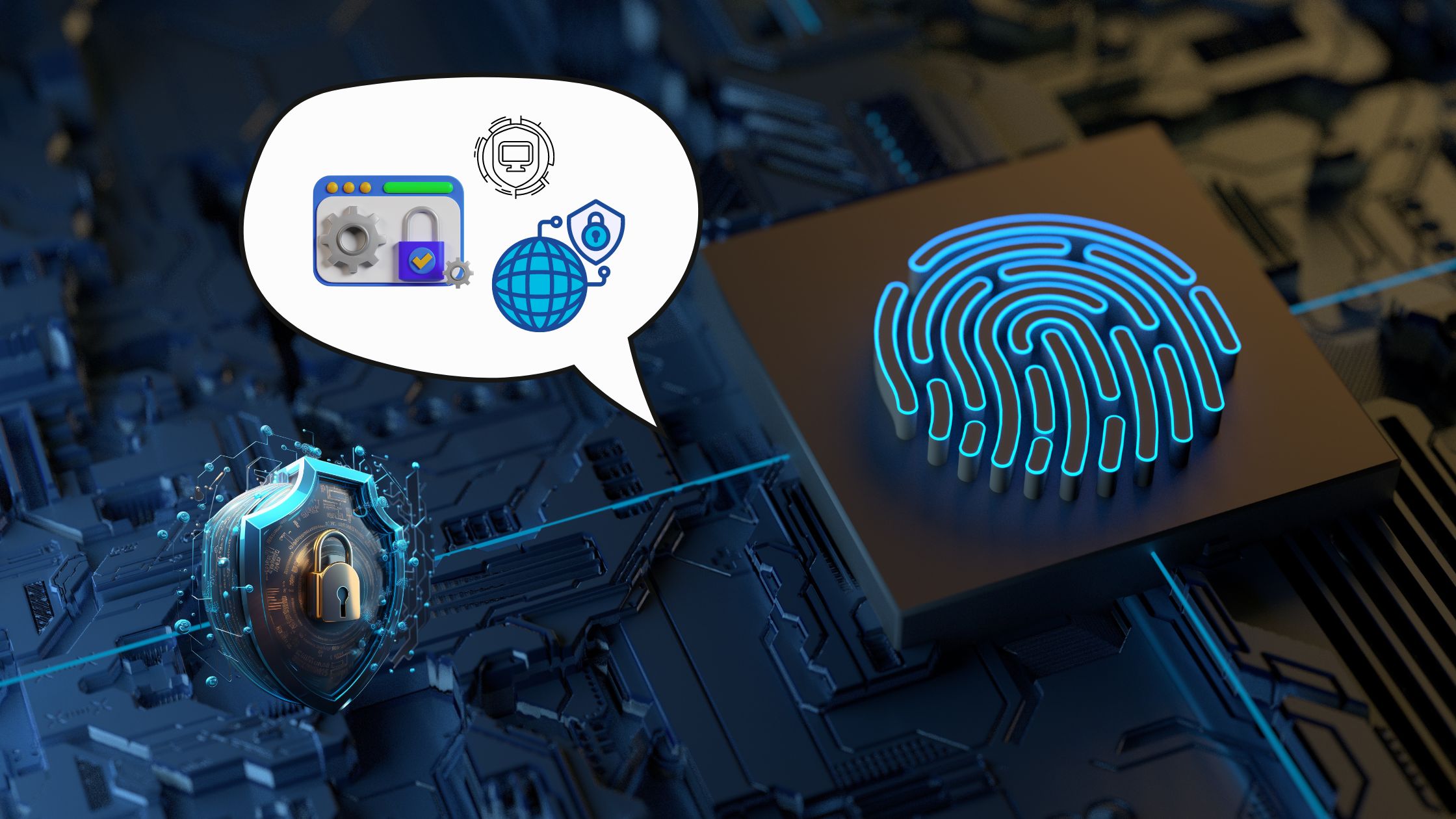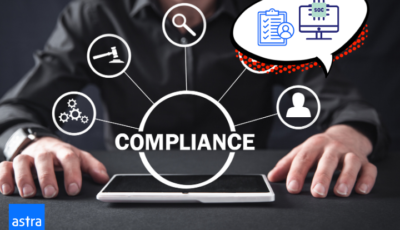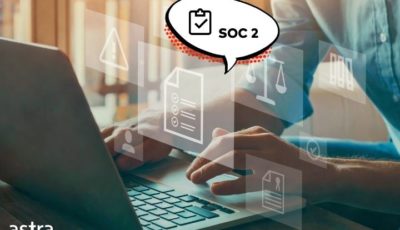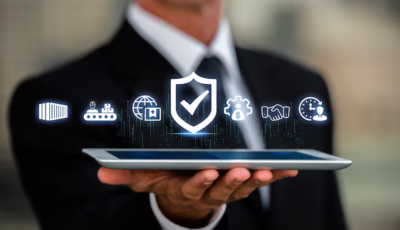With cybersecurity threats on the rise, it’s crucial for businesses to ensure the safety of their data. In today’s fast-paced digital landscape, data privacy and security have become paramount concerns for businesses and consumers alike. As companies store and process sensitive information, clients and stakeholders demand assurances that their data is safe. The SOC 2 compliance audit is a crucial evaluation that provides a seal of approval for service organizations, proving their commitment to safeguarding data.
What is a SOC 2 Audit?
A SOC 2 (System and Organization Controls 2) audit is an assessment conducted by a trusted third-party auditor to evaluate an organization’s information systems’ security, availability, processing integrity, confidentiality, and privacy. The security audit aims to ensure that companies are securely managing sensitive customer data.
Why is SOC 2 Audit Important?
1. Enhanced Trust:
SOC 2 compliance audit demonstrates a commitment to security and data privacy, instilling trust in clients and stakeholders.
2. Competitive Advantage:
Having a SOC 2 report sets an organization apart from competitors, especially in industries where data protection is critical.
3. Regulatory Compliance:
SOC 2 compliance audit helps meet various industry-specific and regulatory requirements.
4. Risk Mitigation:
Identifying and addressing security vulnerabilities reduces the risk of data breaches and potential financial and reputational losses.
5. Customer Retention:
Clients are more likely to continue doing business with a service provider that can demonstrate its dedication to protecting their data.
6. Vendor Requirements:
In today’s interconnected business landscape, partnering with other organizations often involves sharing sensitive data. Many companies now require their vendors and service providers to be SOC 2 compliant. By obtaining SOC 2 compliance audit certification, your organization meets these vendor requirements, unlocking opportunities for valuable partnerships and business collaborations.
Step-by-Step Guide to SOC 2 Audit
Step 1: Scoping and Planning:
This phase helps the company and the third-party auditor to define the objectives and outcomes of the audit. For example, the objectives might revolve around assessing data security controls, processing integrity, confidentiality, availability, or privacy measures. Each organization’s objectives will be unique, tailored to their specific services and data handling practices.
Step 2: Control Identification and Documentation
In a SOC 2 audit, one of the critical steps is the identification and documentation of controls related to the Trust Services Criteria. This means creating a detailed record of the measures taken to ensure data security, availability, processing integrity, confidentiality, and privacy. The success of the audit depends on how effectively these controls are identified and documented. The documentation should include clear descriptions, step-by-step procedures, evidence of implementation, ownership details, testing methods, and reviews. A well-organized and comprehensive documentation enables auditors to assess the organization’s compliance and the effectiveness of the controls in place, ultimately ensuring a successful SOC 2 audit.
Step 3: Control Implementation
Once controls are identified and documented, the organization must put them into practice. This often involves training employees, implementing security protocols, and ensuring policies are consistently followed. These policies serve as a framework for employees and stakeholders to understand how to handle sensitive data, use security protocols, and ensure compliance with established controls.
To ensure policies are consistently followed, companies can take the following measures:
Employee Training:
Training employees involves educating them on the organization’s policies, procedures, and best practices related to data security and the use of security protocols.
Training may include various methods such as:
- Classroom or Online Training: Conducting formal training sessions where employees learn about data security policies, relevant laws and regulations, and the importance of following security protocols.
- On-the-Job Training: Providing practical, hands-on guidance to employees on how to handle sensitive data securely and apply security protocols in their day-to-day tasks.
- Role-Specific Training: Tailoring training programs to specific job roles, ensuring that employees receive training relevant to their responsibilities and data access privileges.
- Security Awareness Programs: Conducting regular security awareness campaigns to keep employees informed about the latest security threats and best practices to mitigate risks.
Automation:
Utilize technology and automation to enforce policies and monitor adherence more effectively.
Management Support:
Ensure that management actively supports and enforces the policies, setting a strong example for the rest of the organization.
Step 4: Pre-Assessment Review
The purpose of a Pre-Assessment Review in a SOC 2 audit is to evaluate the readiness of an organization for the formal audit. It helps identify potential gaps or deficiencies in the controls and processes related to data security, availability, processing integrity, confidentiality, and privacy. The review allows the organization to address any issues before the actual audit, ensuring a smoother and more efficient assessment process.
Step 5: The Formal Audit
In the SOC 2 checklist, ensure that an official SOC 2 audit is performed by an independent third-party auditor. Verify that the auditor evaluates the controls’ effectiveness and checks their alignment with the Trust Services Criteria.
Step 6: Report Issuance
Following the audit, the auditor issues a SOC 2 report. This report details the organization’s controls and their effectiveness in ensuring data security and privacy. The SOC 2 compliance audit report outlines the results of an audit assessing an organization’s controls related to data security, availability, processing integrity, confidentiality, and privacy. The security audit report includes the auditor’s findings, conclusions, and recommendations regarding the effectiveness of the controls in place to safeguard sensitive data.
How long does a SOC2 audit take?
The duration of a SOC 2 compliance audit is influenced by several key factors that need to be taken into consideration when planning and executing the assessment.
Organization Size and Complexity
The size and complexity of the organization being audited play a significant role in determining the audit duration. Larger organizations or those with intricate systems and numerous business processes may require more time for the auditor to thoroughly evaluate their controls.
Scope of the Audit
The scope of the SOC 2 compliance audit defines the specific systems, processes, and controls that will be assessed. A broader scope involving multiple business units or locations may extend the audit timeline.
Control Readiness
The readiness of the organization’s controls for assessment is crucial. If the controls are well-documented, implemented, and regularly reviewed, it will streamline the audit process. On the other hand, if controls are not adequately prepared, additional time may be needed to address gaps and deficiencies.
Availability of Evidence
Auditors rely on evidence to verify the effectiveness of controls. Delays in receiving evidence from the organization can lead to an extended audit period.
Considering all these factors, the duration of a SOC 2 compliance audit typically ranges from a few weeks to several months.
Final Verdict & Conclusion
Take action today by investing in a SOC 2 compliance audit for your organization, especially if you handle sensitive data. This crucial step will not only give you a competitive edge but also bolster your security measures and foster customer trust. By prioritizing a SOC 2 compliance audit, you’re making a significant investment in your business’s reputation and trustworthiness. Stay ahead of the competition and ensure the security of your sensitive data. Take the necessary steps to safeguard your business and build lasting customer trust. Don’t wait; act now!
Frequently Asked Questions
How Astra Security can help in achieving your SOC2?
At Astra Security, we understand the critical importance of meeting regulatory standards such as SOC2, ISO27001, HIPAA, GDPR, and PCI-DSS. Our comprehensive security audits thoroughly assess your organization’s parameters to ensure full compliance with these essential regulations.
Our auditing process identifies any areas within your infrastructure that may fall short of compliance requirements, empowering you to take the necessary steps to achieve full adherence. Non-compliance can result in hefty penalties and fines, which can disrupt your business operations and reputation.
Additionally, with every new feature or addition to your services, it is vital to check your organization’s compliance status to ensure continued safety for your users. Trusting Astra Security for compliance checks will safeguard your security needs and provide you with the peace of mind that your business remains in full compliance with the ever-evolving regulatory landscape. Let us assist you in achieving and maintaining the highest standards of compliance for a secure and successful future.
What’s the difference between SOC 1 and SOC 2 audits?
SOC 1 focuses on financial reporting controls, while SOC 2 assesses security, availability, processing integrity, confidentiality, and privacy controls.
Is a SOC 2 audit mandatory for all businesses?
No, a SOC 2 audit is not mandatory for all businesses. SOC 2 is a type of audit that assesses the controls and processes related to data security, availability, processing integrity, confidentiality, and privacy. It is typically conducted for service organizations that provide services to other businesses, such as cloud service providers, data centers, software-as-a-service (SaaS) companies, and other entities that handle sensitive data on behalf of their clients.
While SOC 2 audits are not mandatory for all businesses, they are often required or requested by clients or business partners as a part of vendor risk management. Many organizations, especially those in the technology, finance, healthcare, and other regulated industries, seek SOC 2 compliance to demonstrate their commitment to data security and to assure their customers that they have robust controls in place to protect their data.
3. How often should a SOC 2 audit be conducted?
A SOC 2 Type II audit should be performed annually to ensure ongoing compliance and security.
What happens if the business fails the SOC 2 audit?
If a business fails the SOC 2 audit, it means that the controls and processes in place to address the Trust Services Criteria did not meet the required standards. Failing the audit could have significant consequences, depending on the organization’s situation:
1. Remediation Efforts: The organization will need to identify the areas where it fell short and take corrective actions to address the deficiencies. This may involve strengthening controls, improving documentation, and enhancing security measures.
2. Re-audit: To achieve SOC 2 compliance, the business will need to undergo another audit after implementing the necessary improvements. The re-audit process will focus on validating the effectiveness of the corrective actions taken.
What happens when a company passes it?
If the business passes the SOC 2 audit, it signifies that the organization has met the required standards for data security, availability, processing integrity, confidentiality, and privacy. Passing the audit brings several benefits:
Client Confidence: Successfully completing the audit builds trust and confidence among clients, assuring them that their data is in safe hands.
Competitive Advantage: SOC 2 compliance can give the business a competitive edge in the market, especially when vying for clients that prioritize data security.
Business Opportunities: Being SOC 2 compliant opens up opportunities to collaborate with other organizations that require vendors to meet specific security standards.
Improved Security: The audit process itself helps the organization identify and address potential vulnerabilities, leading to an improved overall security posture.
How can a business find a trusted third party for the SOC 2 audit?
Finding a trusted third-party for the SOC 2 audit is crucial to ensure the credibility and objectivity of the assessment. A trusted third-party refers to an independent auditing firm with expertise in conducting SOC 2 audits. Here’s how a business can find such an auditor:
Referrals and Recommendations: Seek recommendations from other businesses or industry peers who have undergone SOC 2 audits. Their experiences can guide you to reputable auditors.
Inquire about Methodology: When shortlisting potential auditors, inquire about their audit methodology, approach, and how they ensure objectivity and independence in the process.
Assess Reputation: Check the reputation of potential auditors by reviewing client testimonials, case studies, and any public information available about their track record.
Discuss Expectations: Have detailed discussions with potential auditors about your organization’s needs, objectives, and the scope of the audit. Understand how they tailor their approach to meet your specific requirements.
















